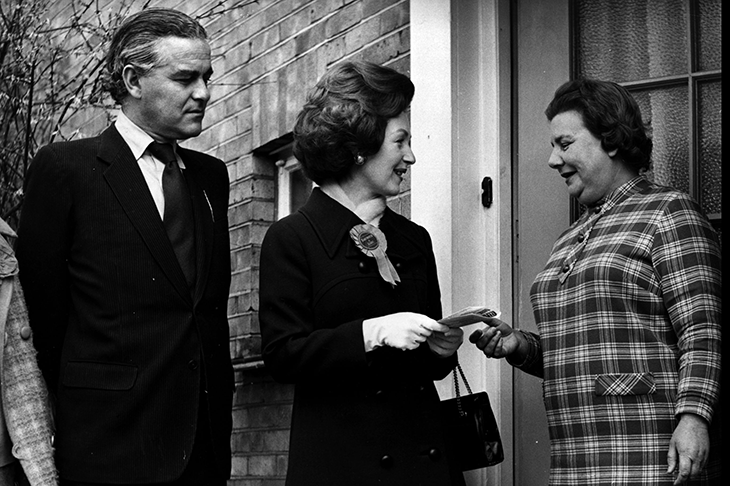You have probably been hearing a lot about doorsteps recently. Politicians love to demonstrate how much they care about ordinary, hard-working voters by banging on about how many front doors they’ve knocked on. Standing on a doorstep, preferably in the driving rain, proves how dedicated you are to getting your message of ‘hope’ and ‘change’ across.
An hour or two pounding provincial avenues, camera crew in tow, pays dividends back at the TV studio where you can then boast about how many of the electorate are on your side. Of course the reality of doorstepping is much bleaker. Politicians rarely tell you about the utter dreariness of hanging around on other people’s shabby stoops; the miserable old gits yelling at you to bugger off back to ‘that London’; the furious ‘just-about-managing’s shooing you away with complaints about the rubbish not being taken away often enough. You never hear politicians bragging to David or Jonathan about how many doors were slammed in their faces or about the avalanches of abuse for not getting out of Europe sooner.
Doorstep trawling mostly involves travelling ‘up and down’ the country. Sometimes it’s the ‘length and breadth’; but mostly it’s up and down, the M1 making it possible to be in and out of a marginal Midlands seat in no time. Pounding doorsteps shows how willing you are to listen to voters’ concerns. In reality, of course, it’s about telling them what they want to hear; that and boasting about how well the economy is doing or how much better it would be doing if only they would swap sides.
Politicians are choosy about the kind of doorsteps they visit. They seem particularly enamoured of those boringly respectable 1930s types, the ones with little glass porches and doorbells; the sort lived in by ‘hard-working families’. You rarely see an honourable member knocking on the handsomely lintelled door of another, very different kind of honourable’s grand Elizabethan pile. And you hardly ever spot inner-city politicians loitering outside those trendy warehouse developments in Shoreditch. That’s because the bearded hipster and the castled viscount are unlikely to be swayed by an impromptu visit and a gaudy, patronising leaflet. Besides, politicians aren’t supposed to care what aristos and hipsters think. As a result, the more attractively rendered doorsteps tend to be ignored — although I would pay good money to watch Jeremy Corbyn being rained on outside Blenheim Palace’s immaculately sculpted Vanbrugh porch, soggy leaflet in hand. Sadly, during this election we didn’t get to enjoy the spectacle of Mrs May pleading with a Hackney hipster because early on in the campaign she decided to abandon doorsteps in favour of a more convenient but equally damp form of communication — the dreaded phone-in.
The rule of thumb seems to be that if you are going to continue badgering voters in the privacy of their own homes, make sure the doorsteps you choose have seen better days but are not too knackered; the ones that could do with a bit of a makeover and a new welcome mat but have not been over-gentrified. Oh, and make sure the doors have functioning letterboxes for when the owners are out — or pretending to be.






Comments